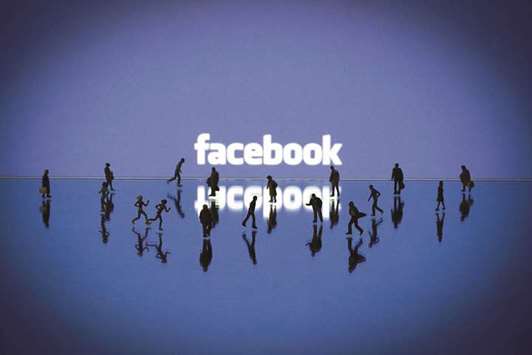Blistering criticism of social media by two former Facebook insiders has brought a new patch of turbulence for the few companies that control the platforms even as their influence grows and their stock soars.
The former Facebook executives voiced regret at how social media companies ensnare users by creating feedback loops of social validation from friends and acquaintances preying on human vulnerabilities.
In a talk last month at Stanford Business School, Chamath Palihapitiya, a former vice president of Facebook, said he felt “tremendous guilt” over what the company had become.
“I think we have created tools that are ripping apart the social fabric of how society works,” Palihapitiya said at the November 10 event, a video of which circulated more broadly to the public this week. In two subsequent appearances this week, Palihapitiya tempered his criticism, calling Facebook an “amazing company” and saying his remarks were aimed at the broader social media world.
Some of the comments echoed those last month by another billionaire Facebook veteran, Sean Parker, the founding president who left the company in 2005. Parker said he didn’t foresee the “unintended consequences of a network when it grows to a billion or 2 billion people, and it literally changes your relationship with society.”
Parker said he worried that Facebook “probably interferes with productivity in weird ways,” and that he wonders about its effect on young people. “God only knows what it’s doing to our children’s brains.”
“These companies just are of almost unimaginable power in shaping what the public sphere is, and that brings with it special obligations,” said Nicco Mele, director of the Shorenstein Center on Media, Politics and Public Policy at the Harvard Kennedy School.
Mele said social media’s rise is reshaping public life in a way that may eclipse the arrival of the automobile and perhaps “not seen since arguably the printing press.”
And just eight companies –– Amazon, Apple, eBay, Facebook, Google, Microsoft, Snapchat and Twitter ––” “effectively control the public sphere online,” Mele said. He noted that eBay owns PayPal, the online payments company, while Microsoft owns the social networking site LinkedIn and Skype, a service for free Internet video and voice calls.
Facebook issued a statement this week saying that Palihapitiya had left his job in 2011 and that the Menlo Park, California, company is no longer the same.
“We are working hard to improve,” the statement said. “We’ve done a lot of work and research with outside experts and academics to understand the effects of our service on well-being, and we’re using it to inform our product development.”
Palihapitiya appeared a bit contrite last Wednesday at the CB Insights A-ha! Conference in San Francisco, saying he did not mean to single out Facebook at his November 10 Stanford talk.
“It was awkward and terrible because those guys made me,” he said.
He said, though, that society must calculate “where are the boundaries” for social media companies. Palihapitiya, who worked at Facebook from 2005 to 2011 and was in charge of designing user experience, again questioned how people, especially young people, deal with the social rejection or validation –– what he earlier had termed “hearts, likes, thumbs up” –– from social media.
In his talk in November at Stanford in Palo Alto, California, Palihapitiya cast the social validation cycle as nearly addictive and said Facebook users can leave the site feeling “vacant and empty.”
“The short-term, dopamine-driven feedback loops that we have created are destroying how society works. No civil discourse. No co-operation. Misinformation,” Palihapitiya said. “We are in a really bad state of affairs right now, in my opinion. It is eroding the core foundations of how people behave by and between each other.”
He told Stanford students that they face risks engaging with social media. “You don’t realise it but you are being programmed,” he said.
Palihapitiya said he no longer uses social media and prohibits his children from doing so.
Facebook has grown to more than 2 billion active monthly users worldwide, and vast numbers of users are deeply attached to it. Yet the company struggles with an ageing user base domestically. Average age of US Facebook users is 40.5 years, as younger people migrate to sites like Instagram and Snapchat.
And the grip of social media on youth is readily apparent, experts say.
“Teenagers, even when they are together in the same physical space, they are engaged with their devices rather than each other,” said Karen North, a psychologist and expert on social media at the University of Southern California’s Annenberg School for Communication and Journalism.
More broadly speaking, North said sites like Facebook sometimes draw people into checking up on friends and acquaintances without interacting with them.
“They’ll go spy on their friends and feel satisfied that they know what their friend is up to without providing the friend the sense that they care about them,” North said.
In other cases, North said users become “really obsessed” with achieving validation from their social circle.
“You can see the desperation that people feel to get rewarded,” she said. “It’s a lot like going to an arcade and seeking to increase your score.”
But, she said, criticism of social media companies can be too apocalyptic; the advent of telephones and even the music video channel MTV also brought much hand-wringing before they were incorporated into daily life. — McClatchy Washington Bureau/TNS

.
